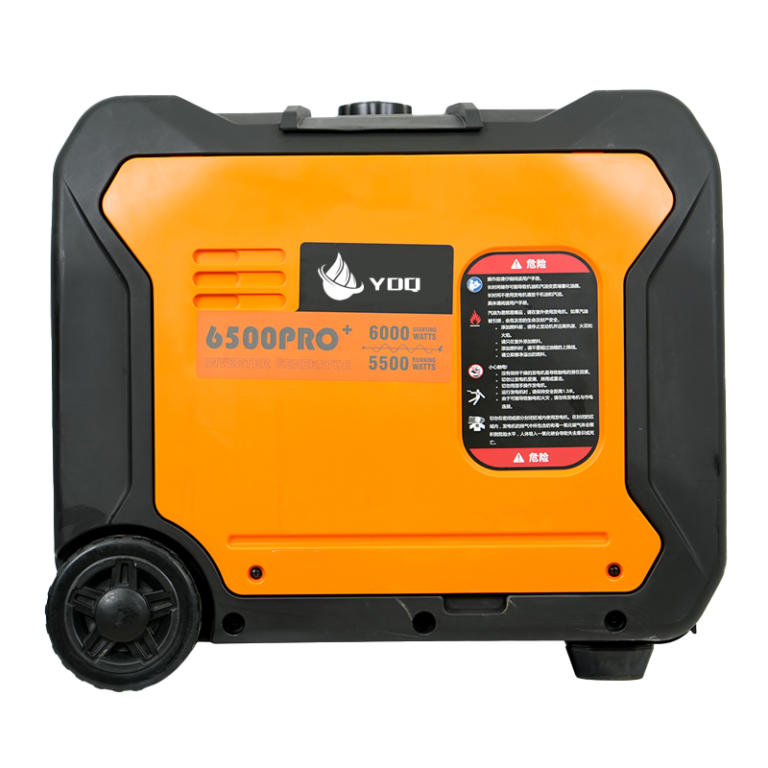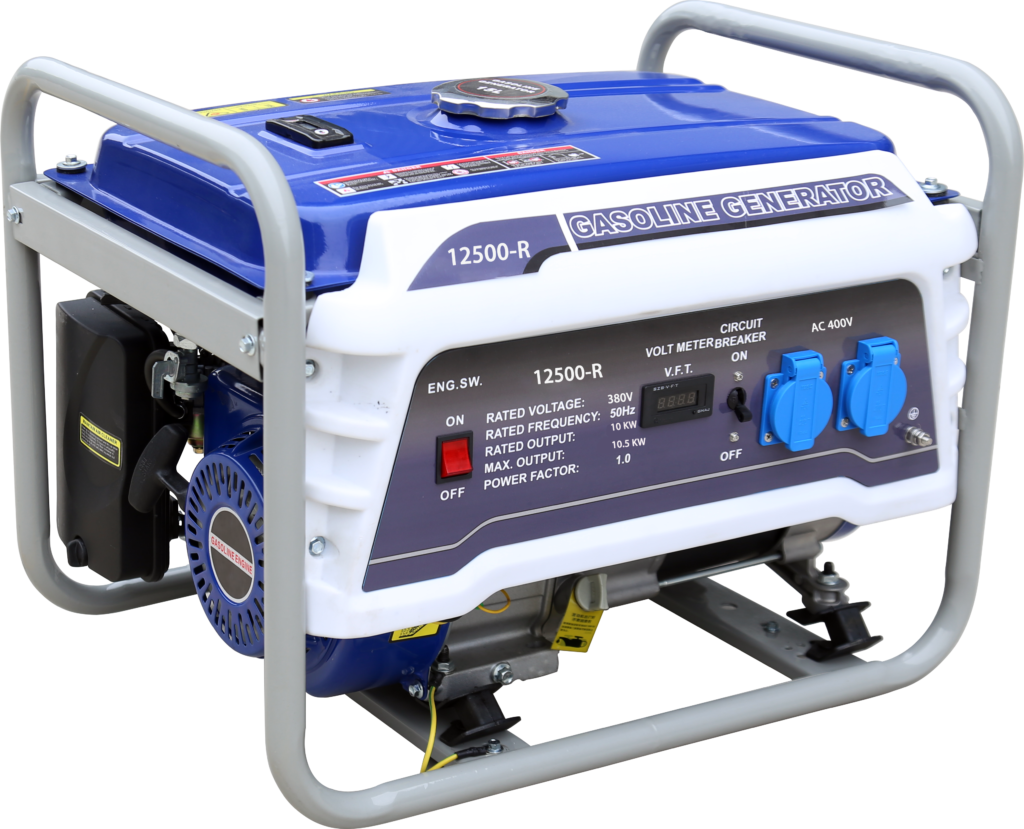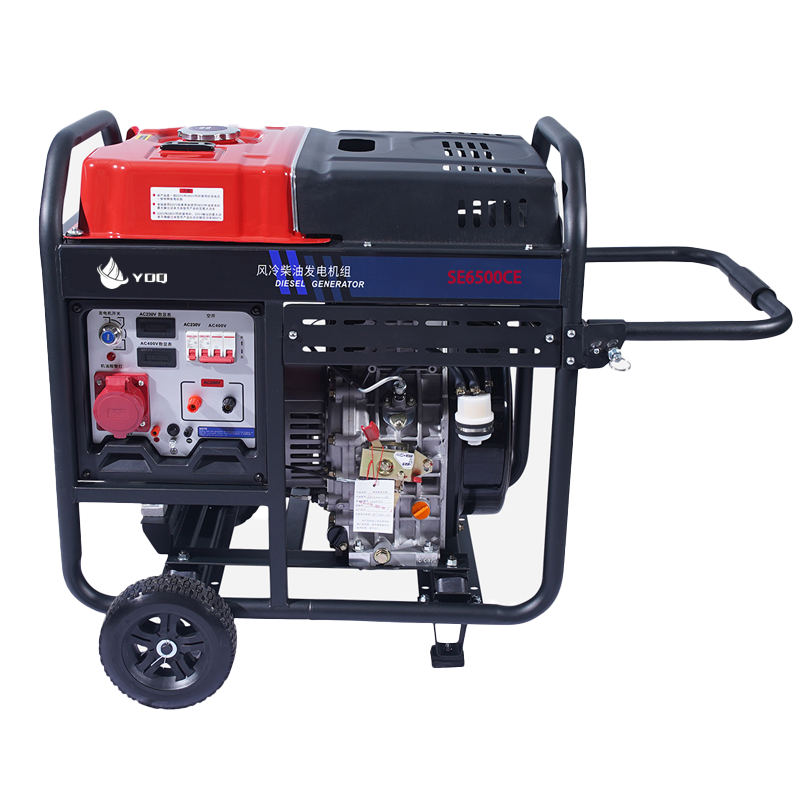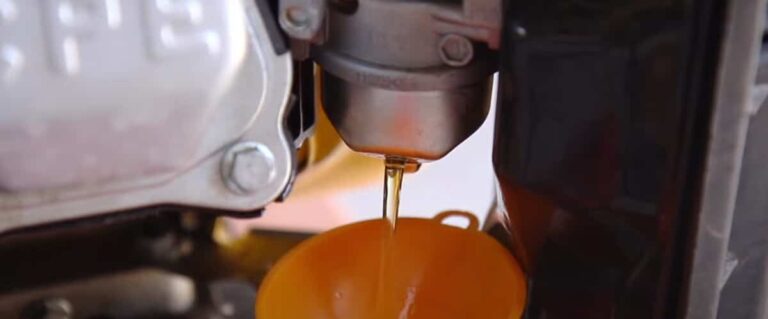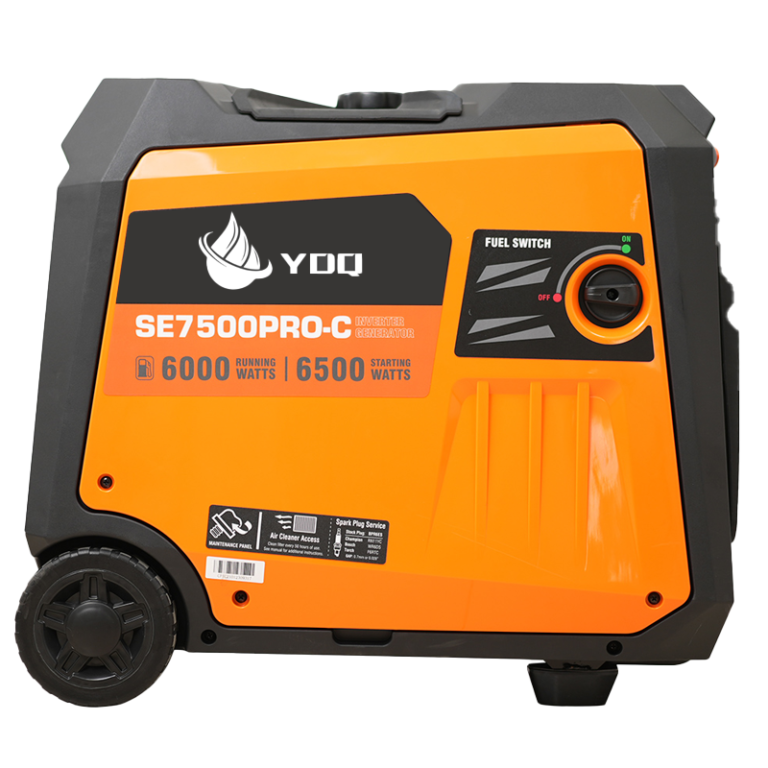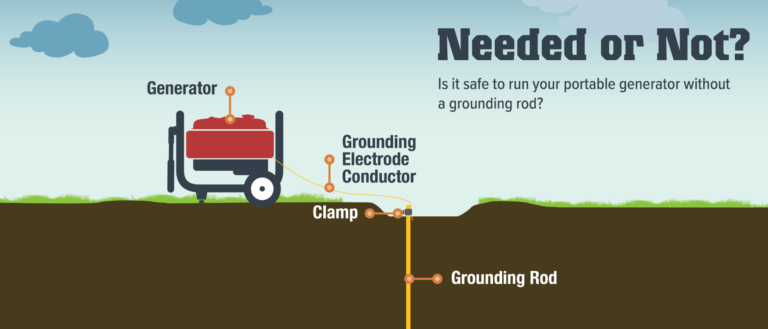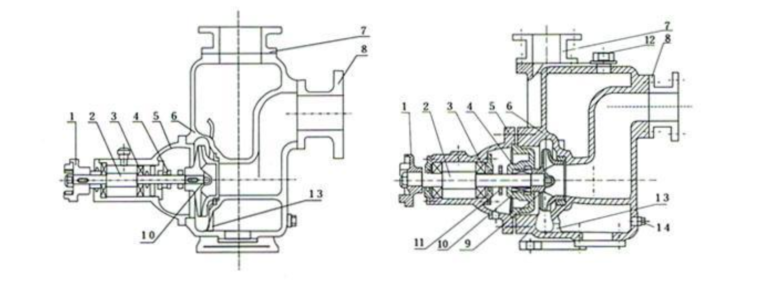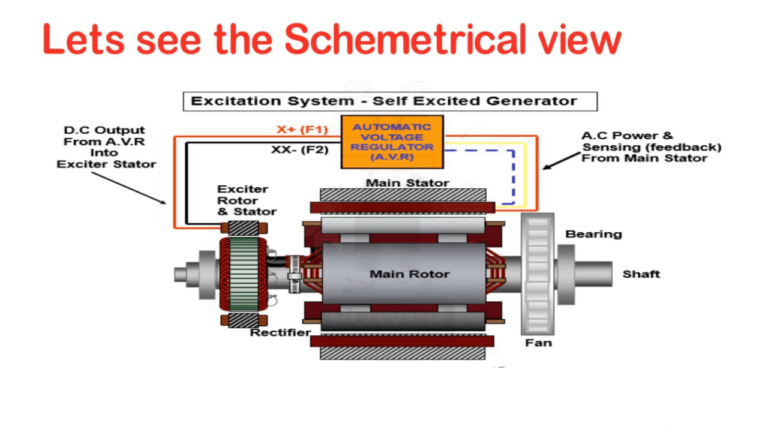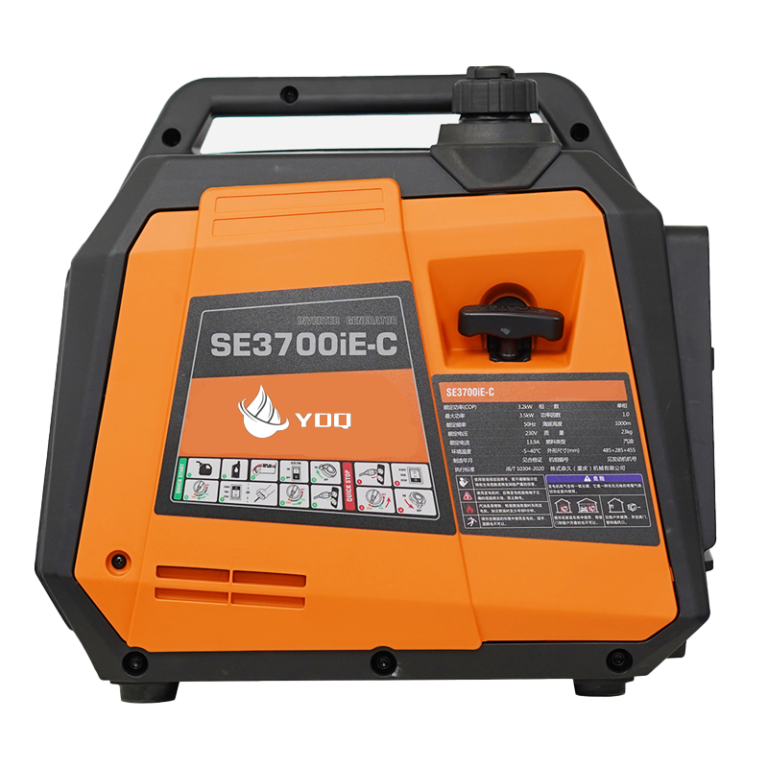
We live in a world full of energy. From cooking food to communicating with friends and family, electricity is needed for just about everything. While you can usually rely on your service provider and the grid for power, you may find yourself at a certain time or location without the necessary electronic equipment. You might be camping, working on site, dealing with a power outage, or experiencing severe weather.
Maybe you are thinking, can a dual fuel generator run on two fuels? Yes, dual fuel generators can run on two different power sources, which makes them very popular and efficient whether they are used in homes, entertainment, or business. However, before getting a dual fuel generator, you need to know more about the device in order to maintain and use it effectively. In this article, we’ll look at dual-fuel generators, how they work, their pros and cons, and the differences between fuel-fired generators and portable power stations.
What is a Dual Fuel Generator?
Dual-fuel generators are designed to run on two fuel types, most commonly LPG and gasoline; some also run on diesel and natural gas. With this type of generator, you can turn on two fuels at the same time or use one fuel source. This feature sets it apart from dual-fuel generators, which, although they can accommodate two fuel sources, cannot use them simultaneously. This innovative power solution is designed to switch seamlessly between these fuels, optimizing efficiency, continuous autonomous time and providing users with a powerful source of power.
One of the main reasons for the popularity of dual fuel generators is their versatility. They allow you to use two fuel sources simultaneously to produce the same wattage and service life you need without limiting you to one fuel. Therefore, dual fuel generators are ideal for running large appliances and those who live off the grid.
Importance of Dual Fuel Generators
Compared with traditional generators, dual-fuel generators only rely on one type of fuel. When emergencies last long and run out of fuel they tend to lose power. Relying solely on a specific energy source—whether solar, diesel, or gasoline—limits our ability to maintain power in our homes during extended outages.
Dual-fuel generators use a combination of propane, natural gas, diesel, or gasoline as their fuel source. These generators are designed to switch seamlessly between fuels, either through manual intervention or automatic mechanisms, depending on power demand or fuel availability.
Dual-fuel generators can utilize multiple fuel sources, and their versatility significantly extends their runtime and application range. Whether your home, business or any industrial setting requires it, this generator’s ability to adapt to different fuels ensures longer periods of uninterrupted power.
Residential use: These generators serve as reliable backup power during unexpected power outages, ensuring that essential equipment and systems continue to operate seamlessly.
Business environment: Businesses often use dual-fuel generators to maintain operations during power outages, preventing potential revenue losses and productivity disruptions. Their ability to switch between fuels allows companies to rely on the most accessible and cost-effective option at any given time.
Industrial scenario: These generators play a vital role in providing necessary energy to heavy machinery and critical processes. Their sturdy construction and ability to operate continuously make them an indispensable asset in the manufacturing industry.
Remote construction sites: Dual fuel generators can provide a stable and reliable source of power. They power heavy machinery, tools and lighting systems, allowing construction projects to proceed without interruption.
Outdoor activities: Dual-fuel generator enhances the outdoor experience. They provide a convenient way to charge devices, run appliances, and provide essential comfort when off the grid.
It’s worth noting that dual-fuel generators are an environmentally friendly option because propane is a cleaner burning fuel than gasoline, resulting in fewer emissions and a smaller carbon footprint. This eco-friendly feature makes it an attractive option for those looking to minimize their impact on the environment.
How Dual Fuel Generators Work?
Dual-fuel generators usually have two fuel supply systems, each used to supply two different fuels. Each fuel supply system includes a fuel gas tank (or oil tank), a fuel pump, and a fuel control valve. When the generator needs to switch fuel, the fuel supply system will switch the fuel automatically or manually according to the set parameters.
The automatic fuel switching mechanism in dual fuel generators operates seamlessly, ensuring uninterrupted power during fuel changes. This technological advancement allows generators to adapt to changing conditions, whether you’re camping in the wilderness, working at a remote job site or experiencing a power outage at home.
Additionally, many dual-fuel generators are equipped with advanced safety features such as low-oil cutoff and overload protection. These mechanisms protect the generator’s engine and electrical components from damage, ensuring longer durability and reliable performance.
Pros of Using a Dual Fuel Generator
Better Fuel Efficiency
To maximize your electricity output, consider purchasing a dual-fuel generator. Dual-fuel generators have better fuel efficiency making them more economical. They can run even on low fuel due to a highly efficient engine that produces optimum power for every unit of fuel, making them cost-effective and saving you money in the long run.
Eco-Friendly Performance
Dual-fuel generators are more environmentally friendly than standard generators, which run on either gasoline or diesel. Most dual-fuel generators have a highly efficient generator and use cleaner propane, reducing toxic gas emissions.
Fuel Flexibility
Dual fuel generators provide the versatility to choose between gasoline and propane, catering to the availability and cost-effectiveness of these fuels.
Extended Run Time
The ability to switch between fuels results in extended run times, crucial during extended power outages.
Cons of Using a Dual Fuel Generator
Because dual-fuel generators are so versatile, almost everyone can benefit from one. However, there are still some potential disadvantages that you need to consider.
Although dual-fuel generators are less expensive than stationary generators, they tend to be more expensive than single-fuel generators. Technically, you’ll get more bang for your buck, but if you do decide to invest in a dual-fuel generator, you should make sure you can take advantage of two different fuel sources.
Dual fuel generators are an incredibly versatile option for people who need power wherever they go. These generators give you peace of mind, and their efficiency and ease of use ensure you get the most out of two different fuel types.
Maintenance Tips for Dual Fuel Generators
Like any generator, twin generators must be maintained, and technically their maintenance is no different than that of a traditional generator. Here are some maintenance tips for dual fuel generators to ensure reliable performance and longevity:
Periodic inspection
Perform a routine visual inspection of the generator to check for any signs of damage, loose connections, leaks, or wear. Check the fuel lines, valves and electrical components for any problems.
Fuel quality
Make sure the fuel source used, whether propane, natural gas, diesel or gasoline, meets recommended quality standards. Contaminated fuel can cause clogs, engine damage, or inefficient operation.
Fuel system cleaning
Clean the fuel system regularly to remove debris, sediment or contaminants that may have accumulated. This can be accomplished by following the manufacturer’s guidelines or using an appropriate fuel system cleaning product.
Switch fuel regularly
If your generator allows manual fuel selection, make a habit of regularly switching between available fuel sources. This helps prevent fuel separation, buildup, or degradation that can occur when a specific fuel source is not used for an extended period of time.
Change oil
Change your oil regularly as recommended by the manufacturer. Maintain proper oil levels and use the recommended oil type for dual fuel generators. Regular oil changes ensure proper lubrication and prevent engine damage.
Air filter maintenance
Clean or replace the air filter according to the manufacturer’s recommendations. A clogged or dirty air filter can restrict airflow and affect your generator’s performance.
Battery maintenance
If your dual-fuel generator has a battery for starting purposes, check the battery regularly for corrosion, loose connections, and for proper charging. Keep battery terminals clean and replace batteries if necessary.
Cooling system maintenance
Make sure the generator’s cooling system, including the radiator or fins, is clean and free of debris or dust. Proper airflow is critical to cooling your engine and preventing overheating.
Trial run
Run the generator regularly to ensure proper function. This helps to detect any problems in advance and keeps the generator in good working order. Follow the manufacturer’s guidelines for recommended test run duration and intervals.
Professional maintenance
Consider having a qualified technician perform regular maintenance and repairs. They can perform thorough inspections, adjustments, and resolve any complex issues that may require expertise.
Storage preparation
If you plan to store your generator for an extended period of time, follow the recommended storage procedures provided by the manufacturer. This may involve draining the fuel, adding fuel stabilizers, and protecting the generator from environmental factors.
Remember, be sure to refer to the specific maintenance instructions outlined in your dual fuel generator manual, as maintenance requirements may vary between models and manufacturers. Following these maintenance tips will help ensure reliable operation, efficiency and longevity of your dual fuel generator.


